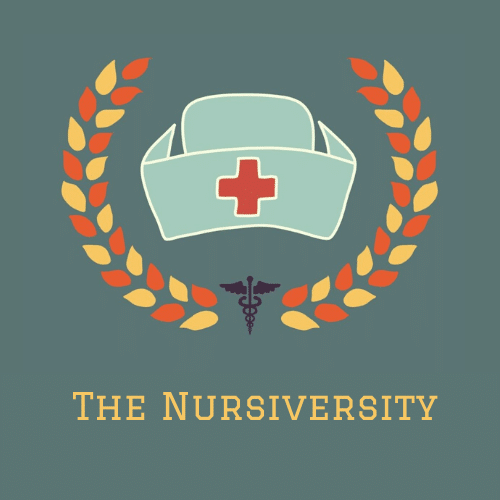Four Secrets to Creating A Nursing Care Plan
Ohhh… nursing care plans. Such a love-hate relationship…ok, mostly just hate.
But they are a part of nursing school that cannot be avoided, unfortunately.
Since so many nursing students struggle with nursing care plans, I thought I would share some secrets on how to make the process a little easier.
These are some of the rules that I followed when creating nursing care plans and they never led me astray. Please enjoy. 🙂
Secret One: Know how to use a nursing diagnosis handbook
I am oddly passionate about Nursing Diagnosis Handbooks. And I think it is because I learned very quickly in nursing school that they pretty much write your nursing care plan for you.
If you don’t already know how to use a nursing diagnosis handbook, then you can check out this post that I created that goes into detail about how to use one.
Knowing how to use one of these handbooks and then utilizing it to its fullest potential will undoubtedly help you create a successful nursing care plan.
It may sound dramatic but knowing how to use a nursing diagnosis handbook can totally change the experience you have in nursing school. They make nursing school so much easier!
Don’t believe me? Learn the ins and outs of how to use a nursing diagnosis handbook and use it to create your next nursing care plan. I bet you’ll be amazed.
Secret Two: Thoroughly assess your patient and gather as much information about them as possible
The first step in creating a nursing care plan is to assess your patient. However, it’s not enough to simply take a glance at your patient and skim their chart briefly.
You need to do a thorough head-to-toe assessment and take notes of certain information in the patient’s chart such as medical history, lab values, and the medication profile.
The more information you gather, the more information you will have to work with.
Remember, you’re a detective trying to build your case. Don’t let this retched screenshot of me be in vain. Gather that evidence!

P.S. if you want to watch the video that this is from, you can find it here. It’s an in-depth video on how to create nursing care plans.
Pro Tip:
Since you will be gathering so much information, it is recommended that you focus your attention to abnormal assessment findings and abnormal lab values. Then, you can take these abnormal findings and categorize them so that it is easier to formulate a nursing diagnosis.
Essentially, ignore all the findings that are “within normal limits” because they are not signifying that the patient is having an issue. Focus your attention on the abnormal findings to create your nursing diagnoses.
Secret Three: Always be as specific and as detailed as possible
This is not the time to be general. You want to be as specific as possible. It’s ok to overshare a little; it will likely be to your benefit.
For instance, instead of saying “patient experienced tachypnea” you would say “patient had a respiratory rate of 40 breaths/minute”. If you say “patient’s oxygen saturation dropped during activity” be sure to include what the oxygen saturation dropped to. Also, you could be more specific about what activity they were engaged in. For example, “patient’s oxygen saturation dropped to 85% during the walk to the bathroom”.
When you are setting goals, be sure to include a timeframe and explain clearly what will signify that the goal has been met.
If you are describing a nursing intervention, you will need to include a timeframe or how often it will be performed. For instance, “the nurse will turn and reposition the patient every 2 hours”.
Go into as much detail as you possibly can!
I can almost guarantee that if you are too vague on your nursing care plan, your instructor will mark it up with “be more specific”.
Secret Four: Don’t overthink it
So many nursing students get so stressed out about nursing care plans that they tend to overthink things.
I saw it time and time again when I was in nursing school.
But you don’t need to get too worked up about nursing care plans.
Do they seem to take forever to complete?
Yes.
Do they sometimes seem pointless?
Yes.
But are they rocket science or brain surgery?
No.
I am not trying to be patronizing but seriously, nursing care plans are not something you need to get too worked up about.
The objective of a nursing care plan is to create a plan of care based on the signs and symptoms the patient is experiencing. We use the assessment data we gather to create nursing diagnoses and we use these diagnoses to create goals and nursing interventions.
There is no need to make it more complicated than that.
You can check out my step-by-step guide on how to create nursing care plans if you are struggling with the whole process as a whole, but just keep the following in mind when you are creating your nursing care plans.
We want to first identify the problems the patient is experiencing.
Our goal is to help our patients feel better, right? So, we need to create a goal to fix the problem (or at least improve it).
Then we create a plan on how to fix the problems (i.e. nursing interventions).
Then once we complete the plan, we evaluate whether or not we met our goal.
Keep it simple and you will be better off for it.
That’s it! I promise that you can and will create awesome nursing care plans while in nursing school.
As always, feel free to reach out to me if you have any questions or just want to chat.
Happy Nursing!

